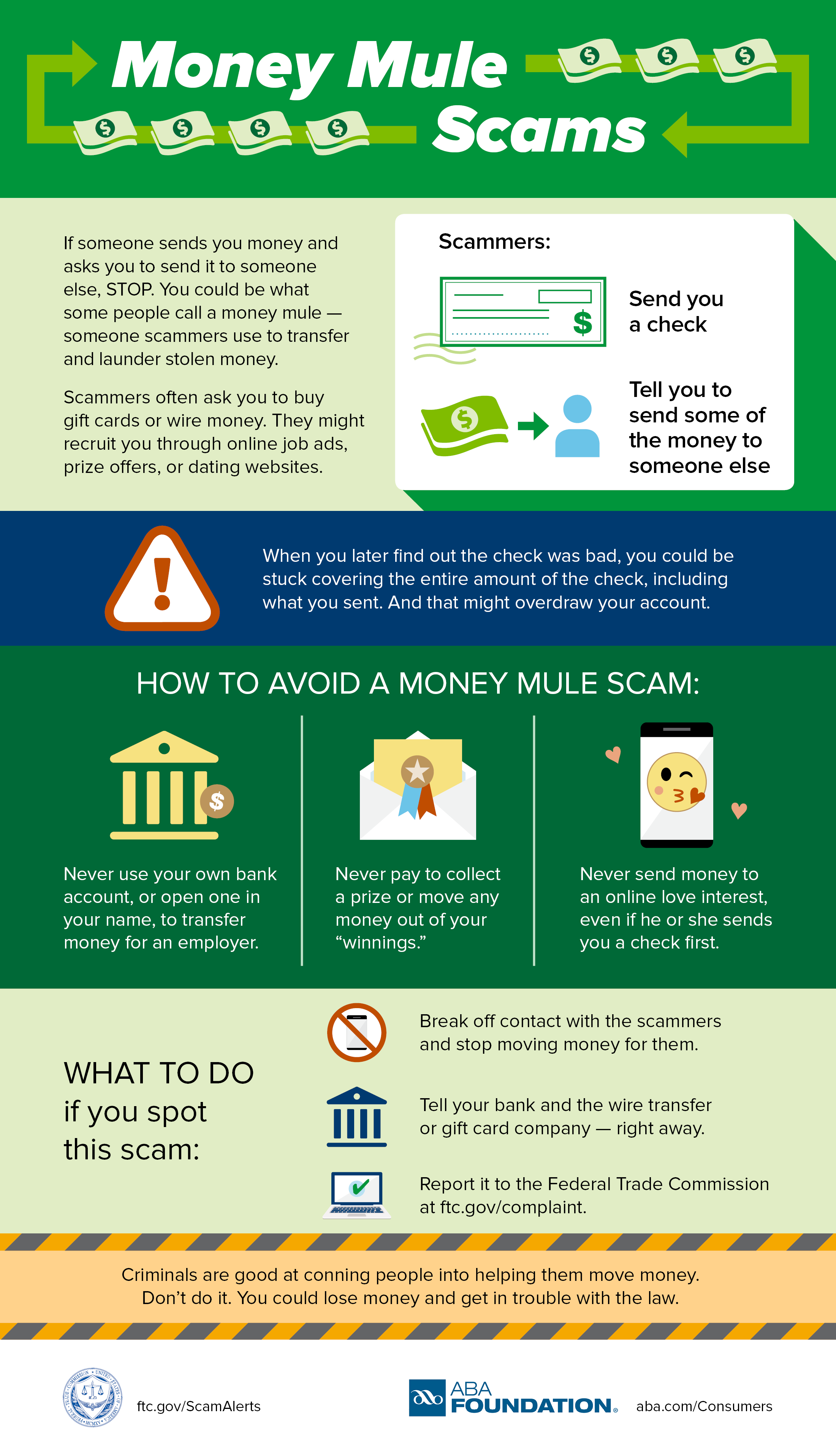Scammers are looking for people to help them move stolen money. They visit online dating, job search, and social media sites, create fake stories, and make up reasons to send you money, usually by check or Bitcoin. Then they tell you to send that money to someone else by using gift cards or wire transfers. But they never say the money is stolen, the stories are lies, or — if you sent the money — you might be acting as what law enforcement calls a money mule.
If you help a scammer move stolen money — even if you didn’t know it was stolen — you could get into legal trouble. You’ll be at financial risk, too. If you deposit a scammer’s check, it might clear at first. When it turns out to be a fake check, the bank will want you to repay the full amount. You may be charged fees, and your account may be overdrawn or closed. And using a scammer’s money to buy gift cards and turning over the PIN codes, or sending wire transfers is almost like sending cash. In both cases, the scammer gets the money quickly, and it’s almost impossible to recover.
How can you avoid a money mule scam?
- Don’t forward money for an online romantic interest who sends you money. That’s always a scam, and a way to get you to move stolen money.
- Don’t accept a job that asks you to transfer money or packages — even if they tell you to send money to a “client” or “supplier.” You may be helping a scammer move stolen money or gift cards.
- Don’t accept a grant or prize award and forward some of the money. That’s another way to get you to move stolen money.
If you think you might be involved in this scam, stop the payment transaction and stop communicating with the person. Tell your bank, the wire transfer service, or any gift card companies right away. If a scammer has your bank account information, close your account immediately. Then tell the FTC at ReportFraud.ftc.gov. 
